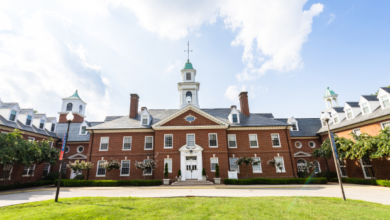Free Chicago cooking class aims to change life expectancy for Black people

Chronic heart disease, cancer and diabetes are among the primary reasons why Black individuals have a shorter lifespan than their white counterparts, particularly in Chicago. A free cooking class is now attempting to bridge this disparity.
The Chicago Tribune reported that Good Food is Good Medicine is one of three initiatives of The Good Food Catalyst and was introduced last year. According to its website, GFGM is an innovative program that combines community listening, collaborative education, cooking and coaching to lower high rates of diet-related diseases while reducing associated health expenses in Chicago’s underprivileged communities.
In addition to the free cooking workshops — which are now being provided at a food incubator and test kitchen in Garfield Park — the program will offer free exercise programs, mindfulness/stress seminars and open discussions with doctors and nutritionists.

Dr. Ed McDonald, a co-founder of Good Food is Good Medicine and gastroenterologist at UChicago Medicine, told The Tribune the cooking classes were intentionally offered in areas most impacted by food deserts and redlining.
“These are areas where healthy food options are overwhelmed or inundated by unhealthy options,” said McDonald, The Tribune reported. “So those same areas that we call food deserts are technically food swamps where you have plenty of food, it’s just unhealthy food. And those, again, are also majority African American neighborhoods.”
Heart disease, which is more common in Black, Latino and South Asian communities, replaced the coronavirus as the main cause of death in Chicago in 2020. While systemic problems like housing discrimination, limited access to health care and a lack of fresh food options in large portions of the city also contributed, several groups in Chicago want to spark change by using free cooking classes that creatively combine food education with tips on healthy eating.
“If we just start throwing fresh veggies in these food apartheid areas, not everything’s going to change,” said Jeannine Wise, co-creator and head chef of GFGM, according to The Tribune. “What [studies] found was that teaching [people] to cook also helped. Because if you don’t know what to do with fresh veggies because you’ve never had them around, then it doesn’t help to have the fresh veggies for no reason.”
Five students are enrolled in the workshop, where they practice roasting and baking before enjoying a lunch of baked salmon, roasted chicken wings and veggies with in-house Buffalo sauce or pesto made with nutritional yeast in place of Parmesan to help it maintain its vegan status.
“I’ve learned how to be creative and making things for myself at home (that are) just a bit healthier but still taste good,” said participant Janet Yarboi.
Yarboi, who told The Tribune she has enjoyed getting to know others in the community and learning healthy cooking methods, maintained “seasoning is everything for me, and I really can’t sacrifice seasoning.”
Wise, whose pronouns are they/she, noted that the current health topics for the recent GFGM meal were diabetes, sodium and cardiovascular disease.
“Some of our favorite foods are fried. And it’s very appropriate to eat fried food, because food is about pleasure and enjoyment and community, right?” they said, The Tribune contended. “However, if you’re eating fried foods as a pattern, you are at higher risk for cardiovascular disease.”
McDonald discussed a wide range of subjects as they ate, including the effects of genetically modified foods, the dangers of cooking red meat at high temperatures and whether dietary issues that have an impact on gut health can be passed down to future generations in a similar way.
Both Johnson and Wise agree that neither ever suggest people eliminate certain foods from their diets, preferring to provide them with suggestions for replacements.
“Yes, we’re going to teach you healthy cooking, but we are never going to say you’re doing something wrong. We’re never going to take food away from you. We’re only going to add,” Wise said, according to The Tribune. “We eat food for a variety of reasons, and many are deeply psychological and emotional.”
McDonald plans to use new financing to examine the success of Good Food is Good Medicine by examining whether participants’ diets alter once the classes are over. In the meantime, Wise is attempting to expand its curriculum to additional Chicago neighborhoods and is also developing a Spanish-language course, collaborating with pre-existing community organizations whenever possible.
TheGrio is FREE on your TV via Apple TV, Amazon Fire, Roku and Android TV. Also, please download theGrio mobile apps today!
[ad_2]
Source link







